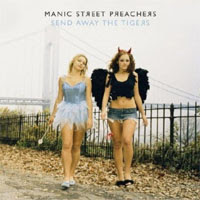When a game is reviewed, it is often scored on sub-scales which denote, with almost mathematical precision, the merits of a title’s component parts. ‘Graphics’, ‘gameplay’, ‘sound’ and ‘longevity’ are the usual suspects, apparently the main criteria by which any game should be judged, the reason we buy games; they look good, play good, sound good and last good (not, you may be thinking, because they are original, thought-provoking or artistic).
The most contentious of the big four is ‘graphics’ which, in the games industry, might as well be represented by a big, fat dollar sign. The reason one game looks better than another, from a technical point of view, is simply a matter of money - studios with greater cash reserves can employ more staff to work longer, no doubt using better equipment. As technology continues to advance and more realistic techniques are developed and utilised (such as post-processing, anisotropic filtering, anti-aliasing, real-life physics and lighting), the smaller studios will be forced to accept that, in review terms, their games will always be starting a few points behind.
Artistic divergence in the industry is seemingly frowned upon as a dangerous form of deviancy, chained to a bygone era, nothing more than a worthless distraction when a faceless marine can shine a light on swaying grass and cast a real-time, high-resolution shadow. Cel-shading - the bright, blocky, cartoon style of thick black lines and bold colours - is now an industry in-joke, a failed experiment, forced to hide its pretty face in niche titles.
 Killer 7 - arguably the best-looking game on PS2
Killer 7 - arguably the best-looking game on PS2
Meanwhile, games built around the Doom 3 engine are lauded as glorious landmarks of the highest order and presented as the pinnacle of the form’s achievement, reaping countless stamps of four-star saleability because, let’s face it, no-one makes five-star games anymore. All that games like Quake 4 and Prey achieve is corridors, corridors, and more corridors, metaphorical and physical; shiny, claustrophobic, silvery boxes with just enough room to circle strafe and absolutely nothing more (it wouldn’t be economical). Ten hours after the opening credits, you’re still in a corridor, trapped inside the maddening steel asylum, praying for the last cutscene, praying for the big thing with weak points on its back, praying for a release. If Prey were a film, it would be ten seconds of footage from Alien looped over and over and over for twelve hours. And not the chest-bursting bit, either.
Speaking of another primarily visual medium, if a film review were to discuss how the latest release looked, would it mention the image resolution? Of course it wouldn’t, it would measure the authenticity, the ambition and the artistry of the images. Modelling miles of corridor is none of these; it is simple, boring and artistically redundant. So why the high score for graphics? The only explanation is that marks are being awarded for the engine’s visual capabilities, but such an approach is akin to rating a camera, a pair of headphones or, sin of all sins, judging a book by its cover.
 Prey - Look at all that gorgeous metal!
Prey - Look at all that gorgeous metal!Two of the other common criteria under the microscope - longevity and sound - are almost as baffling. Firstly, whoever devised the idea of measuring a work of art by its physical size must, to say the least, have peculiar taste. Very few seven-hundred page novels are a Gravity’s Rainbow, very few hour-length records match London Calling and, as films go, for every Godfather there are ten Deer Hunters. With the costs of committed gaming remaining astronomically high, concerns regarding value for money are valid, however I assure you there is far more value in four hours of Metal Gear Solid 2 than Doom 3’s never-ending slog. Don’t misunderstand me here - I am the first to immerse myself in a hundred hours of each new Final Fantasy - just know that, if I commit time to a game, I should do so through want rather than need. In other words, I want to be lost in a different world, not eyeing the clock with a solemn frown, tallying the hours as they slip away.
Sound is the viola of the bunch - the member of the quartet that often finds itself at the bottom of the pile, ironically making the least noise, more often than not to make up the numbers. After all, what is sound but a few nice effects and the odd orchestral piece here and there? Technically, I suppose, it is, but string arrangements need orchestras and footsteps need studios - both of which cost money. Even more outrageous is when a game is complimented for having a good array of licensed music or high-quality voice acting, both akin to complimenting a film on its budget or an album on the cost of the recording studio.
The inbuilt bias towards wealthier companies is only half of the problem, however, given the extent to which in-game sound is currently viewed as nothing more than elaborate, slightly pleasant but ultimately inessential window-dressing. To reviewers I say this: where would Deus Ex’s chilling atmosphere have been without its concave techno minimalism? Where would any of the Silent Hill Games have been without Akira Yamaoka’s brutal noise assault? Though the answer is not quite “nowhere”, it is certainly a case of either “elsewhere” or “anywhere”.
The fourth and final yard stick for assessing a game’s merits in traditional games journalism is the concept of gameplay. What this means in reality is not, “How enjoyable/fresh/exciting is the game?” but, rather, “Does the game have any technical faults?” If the answer to the latter question is “no”, the gameplay is considered perfect and, in the case of any errors, reviewers appear to work backwards from the top score. Dodgy camera? Minus one. Bad collision detection? Minus another. An absence of detachable limbs and breakable crates? Simply unforgivable.
Rather than rewarding creativity, ingenuity, risk-taking and originality, this negative approach punishes games according to a remarkably narrow-minded, almost Puritanical, petty set of guidelines: “I don’t care if I was forced to question my own existence,” complains the critic, “because, without a quick turn button, I had to rotate my character manually.” This, in another lifetime, might also have been my assessment of Silent Hill. Thankfully, it wasn’t.
Lacking the open-minded input of constructive criticism, films might still follow straightforward, chronological plot lines, all books would have a beginning, middle and an end and songs would have a chorus to every verse. This is an especially pertinent issue in a games industry where critics are relied upon more than in any other art medium, where games cost ten times as much as a cinema ticket and where the cost of failure is thus higher than the reward of ten great successes. Tellingly, the closest the games industry has got to a Lynch is Suda 51 who, without wishing to sound disrespectful, is more ‘Blue Monday’ than Blue Velvet.
By basing their reputation on not upsetting casual players, games journalists are being deconstructive and, ironically, restricting themselves. Scores out of ten have taken on a kind of concrete, mythological symbolism; seven out of ten has, almost without fail, come to indicate an average game, while eights are reserved for shallow, good-looking titles, six is for film tie-ins and console strategy games, five and below is for any company not likely to take offence and the hallowed perfect score, reserved for console mascots, is almost always met with murmurs of discontent: “But how can this game have got a ten? There’s some sound clipping on level eight near the east side of the waterfall.”
 Gears of War - another "great" game...ugh
Gears of War - another "great" game...ughWhat I propose (and what I attempt to practise in my own reviews) is a policy of less structure, less maths, less negativity, fewer trivialities and a greater spread of scores. If a game is well-produced but worthless as a work of art, it deserves a three or four, not an easy eight. Conversely, if a game reinvents the wheel before crashing spectacularly, a six is more appropriate than a two. Games which make an important artistic and/or cultural statement should be rewarded with the maximum score (I’m thinking along the lines of Thief, Resident Evil, Grim Fandango, Final Fantasy VII, Deus Ex, Half-Life, Silent Hill 2, Operation Flashpoint, Fahrenheit or Killer 7, to name a few) rather than ones which do everything well enough so as not to be at fault (Freedom Fighters, Black, Splinter Cell, Halo). Also, it is crucial to note that not being fallible is a far cry from being infallible and, even more importantly, that developers and publishers will continue to churn out such wearyingly safe titles if they cannot help but witness such glowing approval.
The quickest way for the games industry shed its image as the boyish, pimply, confused cousin of music, movies and literature is to no longer tolerate the derivative and unmotivated menace that has plagued the industry for so long, instead embracing the weird and the wonderful rather than the type of shallow, proto-fascist bilge legitimated every time Gears of War earns a gold star. The most effective vessels for this sea change are the yellowing keyboards of games journalists around the world who, with the right motivations and the right intentions, can change the way we play games forever and, finally, put an end to
that debate.
 The White Stripes
The White Stripes










